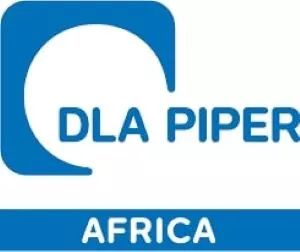Type Approval means subjecting products to a test, with the intent of determining, if such products meet minimum safety, regulatory and technical standards. Type approval is regulated in the United States by the Federal Communications Commission's Equipment Authorization Program and administered by the Office of Engineering and Technology. This ensures that Radio Frequency devices used in the United States operate effectively, without causing harmful interference and otherwise comply with the Commission's technical requirement prior to importation or marketing.1
In the European Union, type approved devices which possess electromagnetic compatibility, are required to guarantee the protection of the health and safety of the user or any other person, and to avoid harmful interference.2 The United States and EU positions, are in tandem with the Nigerian Communication Commission's approach to Type Approval based on safety and limits to electromagnetic radiation.
What is Type Approval under the Nigerian Communications Act?
Type Approval is an official authorisation by the Nigerian Communications Commission "NCC'' prior to the use or supply of an Equipment Type. Equipment type is defined as "any communications equipment specified in terms of its manufacturing brand, trade name, model number, version and function''. 3 Communications equipment is governed by the Type Approval Regulations4 , issued by the NCC and it is on this basis that NCC conducts type approval tests and issue certificates with respect to communications equipment and facilities to be utilised and operated in Nigeria.5
What Legislation governs Type Approval in Nigeria?
Type Approval in Nigeria is governed by:
- The Nigeria Communications Act, "NC Act" 2003;
- The Type Approval Regulations (Subsidiary Legislation) – Nigeria Communications Act 2003; and
- Type Approval Guidelines (Subsidiary Legislation) – Nigeria Communications Act, 2003.
The NC Act, 2003, provides the general regulatory framework for the regulation of the telecommunications industry in Nigeria, while the Type Approval Regulations6 are principally focused on providing further regulatory clarity on Type Approval. The Type Approval Guidelines7 , seek to provide practical steps and clarity on the procedure to obtaining Type Approval amongst other related matters.
Why is Type Approval important?
Type Approval issued by the NCC is to ensure that all telecommunications equipment in operation in the Federal Republic of Nigeria, do so seamlessly, while ensuring the safety within the Nigerian telecommunications environment.8 It seeks to promote interoperability between communication networks, ensure that communications equipment used in communications networks is subject to limits on causing or being affected by electromagnetic radiation and promote the development of communication networks.9
What sort of Equipment/devices are Type Approved and why?
The scope of the Type Approval extends to all devices with communication capabilities. 'Communications' is defined to mean "any communication between persons and persons, things and things, or person and things, in the form of sound, data, text, visual images, signals, or any other form or any combination of those forms". 10 The rationale behind the Type Approval of devices/equipment with communication capabilities, is also to bring them into consonance with the creation and provision of a regulatory framework for the Nigerian communications industry and all matters related thereto.
What are the requirements for Type Approval?
For Type Approval, the NCC requires that an application is made, using the NCC's standard type application form, 11 accompanied by a Declaration of Conformity12. The Declaration of Conformity states the standards to which the equipment sought to be Type approved conforms to, the technical basis for which the declaration is made, and tests made. There is also a requirement for the Declaration of Conformity to be accompanied with suitable test results13 , in addition to the payment of prescribed fees by the NCC.
Must all Communication equipment be Type Approved?
The NC Act permits certain exemptions to Type Approval. For instance, Communications Equipment which (a) has been previously Type approved by the NCC; (b) complies with its required standards; (c) has the same manufacturing brand name, product name, model number, and functions as the approved Communications Equipment; (d) uses no radio frequencies beside those used by the approved Communications Equipment Type, are exempted. 14
In addition, Communications Equipment which were installed or connected to a communications network for at least six months before the commencement of the regulations, did not interfere with the operation of that or any other communications network and did not constitute public hazard, were exempted for a twelve-month period, commencing from the commencement date of the Regulations. However, given that the Regulations were enacted in 2007, we believe this latter form of exemptions are no longer tenable.
Can Type Approvals be revoked?
The NCC may validly revoke an earlier granted Type Approval or annul an exemption, provided the NCC has significant evidence that the Equipment does not comply with the applicable Type Approval standards, interferes with the operation of a communications network or communications equipment or constitutes a public hazard.15 Upon a revocation of a Type Approval or annulment of an exemption, the NCC is required to publish a notice to inform the Equipment Holders of such revocation or annulment.16
Can the certificates be downloaded online?
There is no public database where Type Approval Certificates may be downloaded. Please note however that the NCC provides a list of Type Approved equipment on the NCC website.
Do the certificates expire?
In practice, when the Certificates are issued, there are no expiry dates on them and as such, do not expire.
Are there any labelling requirements for Type Approved Equipment?
All NCC Type Approved equipment must be marked with a durable label, close to the model identification number. The labelling can also be done on the device packaging and User manual, but it is not mandatory, except if by reason of size, or other design features the product itself cannot be marked, then the label must be included in the accompanying documentation of the equipment. 17 The NCC also encourages e-labelling of devices.
Are there any consequences for failure to obtain Type Approval?
A failure to obtain Type Approval before the use or supply of such equipment in Nigeria is considered a contravention of the Regulations. 18 In such circumstances, the NCC is empowered, at its own discretion, to impose administrative fines. 19 or exercise any of its testing, seizure, detention or sealing powers, pursuant to the NCC's Enforcement Processes Regulation20 or issue such directions as the NCC deems fit.21
CONCLUSION
Type Approval of Communications Equipment is required and essential, to promote interoperability between communication networks, as well as to ensure that communications equipment being used on communications networks are safe and subject to limits on electromagnetic radiation.
Not all Equipment requires Type Approval, so it is essential that the Equipment Holder considers the nature of the Equipment, the provisions of the Type Approval Regulations to consider whether the exemptions apply or not. Please note however that the NCC would still have to be engaged, as the Regulations do not permit Equipment Holders to self-determine whether the exemption criteria apply or otherwise.
Footnotes
1 https://www.fcc.gov/engineering-technology/laboratory-division/general/equipment-authorization
2 https://eur-lex.europa.eu/EN/legal-content/summary/radio-and-telecommunications-terminal-equipment.html
3 Section 32 of the Type Approval Regulations (Subsidiary Legislation)-Nigerian Communications Act, 2003
4 Type Approval Regulations (Subsidiary Legislation)-Nigerian Communications Act, 2003
5 Section 132, Nigerian Communications Act, 2003
6 ibid
7 ibid
8 https://ncc.gov.ng/technical-regulation/cybersecurity/19-spectrum-standards/technical-standards/type-approval
9 Section 2 of the Type Approval Regulations (Subsidiary Legislation)-Nigerian Communications Act, 2003
10 Section 157 of the Nigerian Communications Act, 2003
11 Section 4 of the Type Approval Guidelines
12 ibid
13 Section 6 of the Type Approval Guidelines (Subsidiary Legislation)-Nigerian Communications Act, 2003
14 Section 19, Type Approval Regulations (Subsidiary Legislation)-Nigerian Communications Act, 2003
15 Section 17 Supra
16 Section 18 Supra
17 Section 10 of the Type Approval Guidelines (Subsidiary Legislation)-Nigerian Communications Act, 2003
18 Section 27 of the Type Approval Regulations (Subsidiary Legislation)-Nigerian Communications Act, 2003
19 Section 19 of the Nigerian Communications Commission (Enforcement Process, etc.) Regulations (Subsidiary Legislation)-Nigerian Communications Act, 2003
20 Section 5 of the Nigerian Communications Commission (Enforcement Process, etc.) Regulations (Subsidiary Legislation)-Nigerian Communications Act, 2003
21 Section 53 of the Nigerian Communications Act, 2003, CAP. N97 LFN, 2010
Practice Group: Finance and Projects (Transport and Infrastructure)
The content of this article is intended to provide a general guide to the subject matter. Specialist advice should be sought about your specific circumstances.



